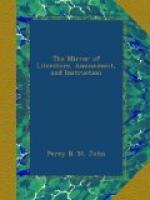And in this Cittie London have
remayned
Called by the name of Marshall
Farriers,
Which title of Kinge Edward the Third
was gaynde,
For service done unto him
in his warres,
A Maister and two Wardens
in skill expert,
The trade to rule and give
men their desert.
And for utilitie that cannot be denied,
That many are the Proffitts
that arise
To all men by the Farriers arte
beside.
To them they are tied, by
their necessities,
From the Kinge’s steede unto the
ploweman’s cart,
All stande in neede of Farriers
skillfull arte.
In peace at hande the Farriers
must be hadde,
For lanncing, healinge, bleedinge,
and for shooeinge,
In Warres abroade of hym they wille be
gladd
To cure the wounded Horsse,
still he is douinge,
In peace or warre abroade, or ellse at
home,
To Kinge and Countrie that some good may
come.
Loe! thus you heare the Farriers
endelesss praise,
God grant it last as many yeres as it
hath lasted Daies.
Anno Dni 1612.
G.W.
[1] It commences from Henri de Ferrer, Lord of Tetbury,
a Norman who came
over with William the Conqueror.
* * * * *
CURIOUS SCRAPS.
We read of a beautiful table, “wherein Saturn was of copper, Jupiter of gold, Mars of iron, and the Sun of silver, the eyes were charmed, and the mind instructed by beholding the circles. The Zodiac and all its signs formed with wonderful art, of metals and precious stones.”
Was not this an imperfect orrery?
In 1283, say the annals of Dunstable, “We sold our slave by birth, William Pike, with all his family, and received one mark from the buyer.” Men must have been cheaper than horses.
In 1340, gunpowder and guns were first invented by Swartz, a monk of Cologne. In 1346, Edward III. had four pieces of cannon, which contributed to gain him the battle of Cressy. Bombs and mortars were invented about this time.
In 1386, the magnificent castle of Windsor was built by Edward III. and his method of conducting the work may serve as a specimen of the condition of the people in that age. Instead of engaging workmen by contracts or wages, he assessed every county in England to send him a certain number of masons, tilers, and carpenters, as if he had been levying an army.
In 1654, the air pump was invented by Otto Guericke, a German.
1406, B.C. Iron first discovered by burning the woods on Mount Ida, in Greece.
720, B.C. The first lunar eclipse on record.
Anaximander, the disciple of Thales, invented maps and globes; born about 610 B.C.
894, B.C. Gold and silver money first coined at Argos, in Greece.
274, A.D. Silk first imported from India.




